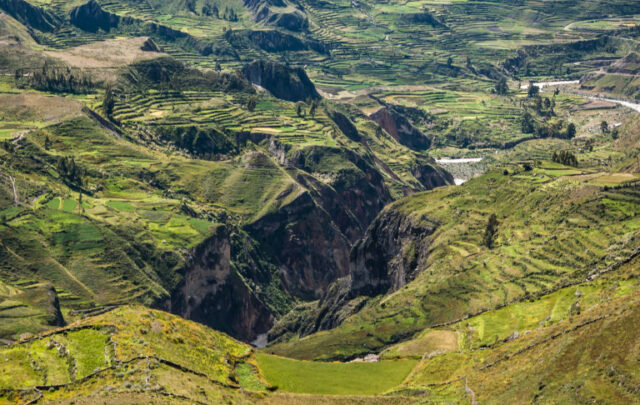Click on the headline (link) for the full text.
Many more articles are available through the Energy Bulletin homepage
Is meat off the menu?
Raj Patel, The Guardian
America is the most overweight country on earth. Only three out of 10 Americans have a normal body weight. I should have guessed that one of the side effects of moving to the US would be bloating.
Since leaving London for America a decade ago, I’ve put on a couple of stone. It’s easy enough to blame the food environment here. This is, after all, the land where Reagan pronounced tomato ketchup a fruit and, more recently, where French fries and chocolate-covered cherries were legally dubbed ‘fresh produce’ under a US Department of Agriculture (USDA) regulation known as the batter-coating rule.
I can’t just censure America for my condition, of course. Getting older and stopping smoking have accelerated my middle-age spread. I’m more active now than I used to be, but that hasn’t kept the podge at bay. And I’m convinced that part of the problem is that I eat meat. I came to America a vegetarian and I’ve lapsed into occasional chicken and fish (though, because of a residual Hinduism, no beef).
I’m not the only person to be blaming flesh for bad outcomes.
(22 June 2008)
Chatty rather than polemical. -BA
Yes, We Will Have No Bananas
Dan Koeppel, New York Times
ONCE you become accustomed to gas at $4 a gallon, brace yourself for the next shocking retail threshold: bananas reaching $1 a pound. At that price, Americans may stop thinking of bananas as a cheap staple, and then a strategy that has served the big banana companies for more than a century – enabling them to turn an exotic, tropical fruit into an everyday favorite – will begin to unravel.
The immediate reasons for the price increase are the rising cost of oil and reduced supply caused by floods in Ecuador, the world’s biggest banana exporter. But something larger is going on that will affect prices for years to come.
That bananas have long been the cheapest fruit at the grocery store is astonishing. They’re grown thousands of miles away, they must be transported in cooled containers and even then they survive no more than two weeks after they’re cut off the tree.
Dan Koeppel is the author of “Banana: The Fate of the Fruit That Changed the World.”
(18 June 2008)
Brian H McNeill writes:
Peak Bananas. I love your site, and I eat about 4 bananas a day, so in my world “Peak Bananas” might be worse than $12.00 a gallon gasoline.
Midocean trawlers mine world’s seamounts
Moises Velasquez-Manoff, Christian Science Monitor
Unregulated fishing fleets work fast and deep, but rising cost of fuel may rein them in before laws do.
—
In the mid-1970s, fishing boats came across great aggregations of a reddish fish around underwater mountains, called seamounts, near New Zealand, a kilometer deep. A century before, fishermen had discovered the same species in the northeast Atlantic. But never had anyone encountered schools this dense. Characterized by a blunt face lined with mucosal glands, the fish wasn’t exactly handsome. But its flesh, which tasted vaguely of shrimp, was white, firm, and delicate. The only problem: the name. The fish was called “slimehead.” So “some smart marketer,” in the words of one expert, rechristened it “orange roughy.” And a new high-end fishery was born.
For many, it was evidence of a worrisome new trend. Enabled by improved technology, fishing fleets were going farther and deeper than ever before. By the mid-1980s, they had converged on seamounts the world over, seeking deep-water species like orange roughy and Patagonian toothfish (marketed as “Chilean sea bass”). They were now trawling places that, by virtue of their depth and rough topography, were previously off-limits. Many characterize what followed – and continues to occur – as akin to strip-mining: Catch everything as quickly as possible and then move on.
(19 June 2008)
Global quandary: How to feed a growing planet
Jack Chang, McClatchy Newspapers
… These three episodes, all on Thursday, are interconnecting pieces of what’s emerged as one of the biggest challenges facing the planet: how to feed humanity in this age of skyrocketing food and energy prices.
The problem is a global one, in which a breakdown anywhere in the food chain sets dire consequences in motion and in which the root causes range from rising consumption in Asia to growing biofuel production in the United States and Europe to dwindling supplies of water in the Middle East.
“The world is running now to keep up with demand,” said Abdolreza Abbassian, a grain analyst with the U.N. Food and Agriculture Organization. “Any interruption in the global picture affects supplies.”
Already, some 800 million people around the world suffer from chronic food shortages, and millions more could go hungry because of the widening food crisis.
(19 June 2008)





